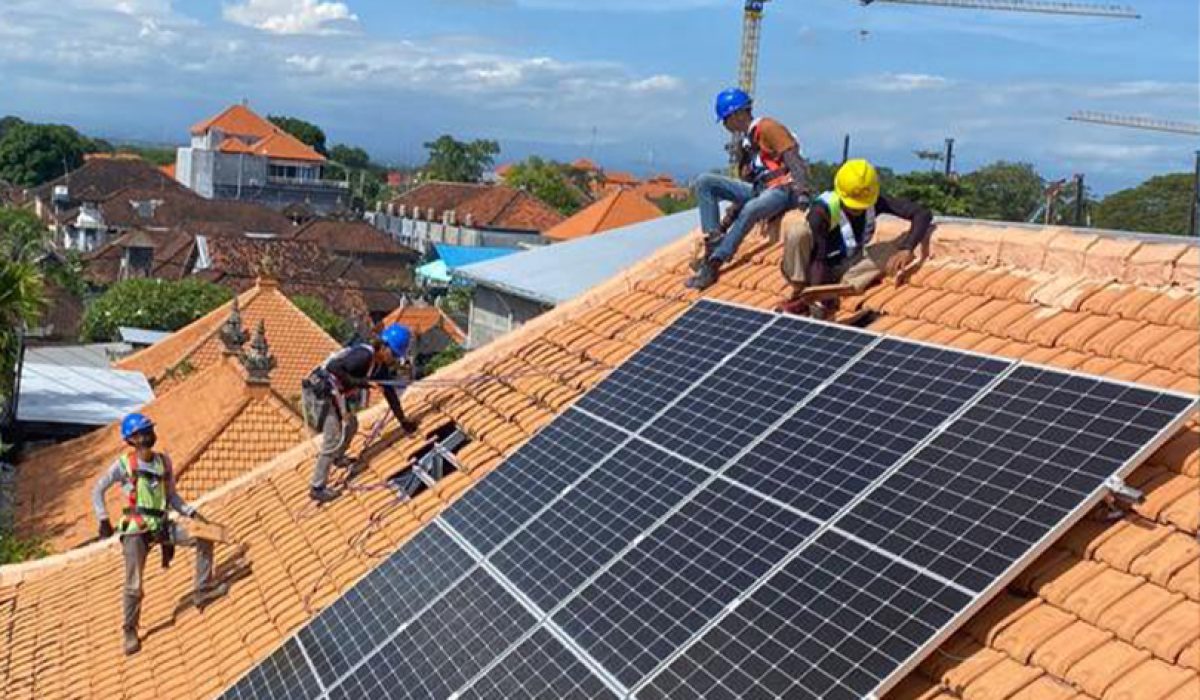What is Climate Change?
Climate change refers to the changes in the earth’s climate and their impacts on the natural ecosystem, biosphere, and society. These changes can be linked to natural processes such as variations in solar radiation received by the Earth or volcanic eruptions, or human activities such as the release of greenhouse gases into the atmosphere. The most widely accepted indicator of global warming is the increase in global average temperature since 1880.
Global warming is a series of changes in the earth’s climate associated with the increase in greenhouse gases (GHGs) released by human activities. GHGs trap heat in the atmosphere, resulting in various effects on the Earth’s climate including warming temperatures, changes in rainfall patterns, and increased evaporation from oceans and melting ice sheets.
GHGs include carbon dioxide, methane, nitrous oxide, and some halocarbons. These gases are emitted into the atmosphere by various human activities including the burning of fossil fuels, industrial processes, and agriculture. The current Earth’s climate system shows signs of increasing amounts of GHGs.
GHGs trap too much heat in the atmosphere and cause global warming. The most significant consequence of human-caused GHG emissions is the potential for increased global warming. Various natural phenomena provide a series of positive feedback that strengthens climate change, further increasing the likelihood of rapid changes in the Earth’s climate system. These feedback loops can accelerate or worsen global warming, leading to potentially irreversible consequences.
How Climate Change Affects Life
The impact of climate change is increasingly affecting our lives and the environment. This is a major problem that needs to be addressed on a global scale, such as rising sea levels, extreme weather events, droughts, floods, and many more.
Climate change is caused by human activities with the main cause being greenhouse gas emissions from industrial activities such as the burning of fossil fuels and deforestation. To address this issue, global initiatives have been formed such as the Paris Climate Agreement, a legally binding agreement made by 195 countries in 2015.
The report released by the Intergovernmental Panel on Climate Change for the first time in history also shows that global temperatures are on track to rise more than 2 degrees Celsius from pre-industrial levels. Global warming has increased sea levels and is continuing, with the rate of increase on track to reach 1.7 meters by the end of this century, according to the report.
The Paris Climate Agreement was signed in 2015 to limit global warming to 2 degrees Celsius. However, the Earth has experienced a slowdown in temperature rise, which has raised concerns among experts.
Some experts have expressed concern that the Earth will not be able to meet its commitment to limit warming to 2 degrees Celsius due to the slowdown in temperature rise. This will result in further damage to the Earth’s environment and a greater risk of climate change disasters.
Some of these concerns have been addressed by new research on how climate change affects glaciers and sea ice, which are important indicators for understanding how much global warming has occurred.
How You Can Help Reduce the Impact of Global Warming
Climate change is one of the most urgent challenges facing humanity today. This is a global problem that requires a global response.
The effects of climate change are already being felt around the world, with many regions suffering from extreme weather and rising sea levels. With more and more people becoming aware of this issue, it is important to take action to reduce the impact of global warming.
Individuals can make a difference by reducing their carbon footprint, for example, by using public transportation or carpooling, reducing energy consumption, recycling, and supporting sustainable businesses. Governments can also take action by investing in renewable energy, implementing policies to reduce emissions, and promoting sustainable development.
Climate change is one of the most pressing challenges facing humanity today. It is a global issue that requires a global response. The effects of climate change are already being felt around the world, with many regions experiencing extreme weather events and rising sea levels. As more and more people become aware of this issue, it is important for us to take action to mitigate its impacts.
The consequences of climate change are far-reaching, affecting not only the natural world but also human societies. The changes in temperature and precipitation patterns can disrupt ecosystems, alter the distribution and abundance of plant and animal species, and increase the risk of natural disasters such as floods, droughts, and wildfires. The rise in sea levels can displace millions of people living in coastal areas, causing social and economic upheaval.
However, there is still hope. We can take action to slow down and mitigate the impacts of climate change. By reducing our greenhouse gas emissions, conserving natural resources, and adopting sustainable practices, we can help to protect our planet for future generations.
The Paris Climate Agreement, signed by 195 countries in 2015, is a significant step towards addressing the issue of climate change. The agreement aims to limit global warming to below 2 degrees Celsius above pre-industrial levels, and to pursue efforts to limit the temperature increase to 1.5 degrees Celsius. This will require a major shift towards renewable energy, energy efficiency, and low-carbon transportation.
Individuals can also play a role in combating climate change. By making simple changes to our daily lives, such as using energy-efficient appliances, reducing waste, and choosing sustainable modes of transportation, we can help to reduce our carbon footprint. We can also support political leaders and policies that prioritize environmental protection and sustainable development.
In the end, the fight against climate change is a collective effort. It requires collaboration and cooperation between individuals, communities, governments, and industries. By working together, we can create a sustainable future for ourselves and for generations to come.


